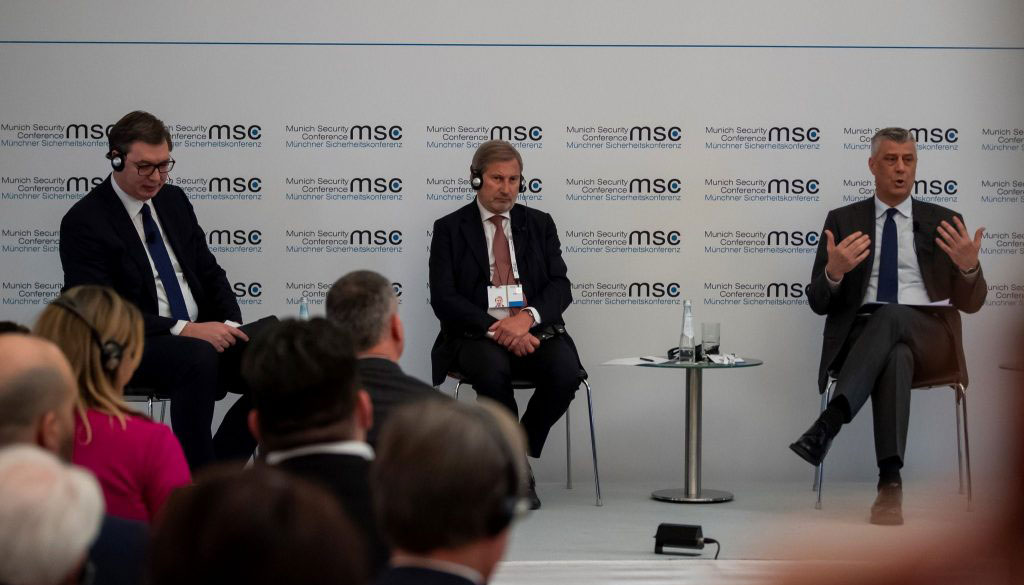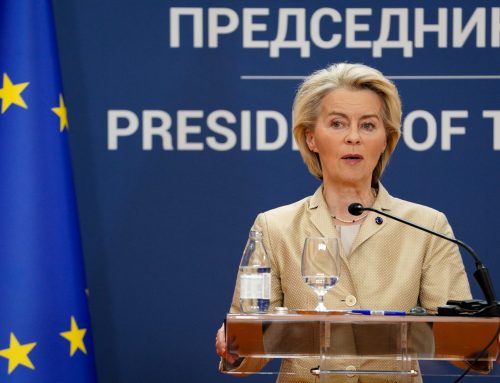European Commissioner for Neighbourhood Policy and Enlargement Negotiations participated in a panel discussion within the Munich Security Conference, which also featured appearances from Presidents of Serbia and Kosovo* Aleksandar Vucic and Hashim Thaci who spoke about the process of normalization of relations between the two sides. The panel was moderated by Wolfgang Ischinger, Chair of the Conference and former Kosovo-Serbia negotiations facilitator.
The discussion followed the panel which saw Prime Ministers of Greece and the Republic of North Macedonia Alexis Tsipras and Zoran Zaev. The Presidents of Serbia and Kosovo agreed that the normalization of relations of Serbia and Kosovo is a much harder task.
President Vucic said that the dialogue between Belgrade and Pristina is currently in a stalemate. He noted that Serbia is doing everything in its power to find a compromise and has met all of its obligations arising from the previously reached agreements.
“They had one job – to set up the Association of Serb Communities – and they failed at it,” Vucic ssaid.
Even though Pristina imposed 10% taxes on goods imported from Serbia more than 100 days ago, we haven’t responded with countermeasures, Vucic added. He said that the taxes, along with the newly adopted negotiations platform, do not go in favour of the dialogue.
President Thaci replied that the majority of agreements, signed since 2013, has been or is being implemented, noting that the agreements must be in accordance with the Kosovo Constitution.
“We are currently in a state of a frozen conflict, which, in my opinion, is a sort of like taking a step back: we need a compromise that will ensure mutual recognition and allow Kosovo to become a UN member,” he noted.
According to him, the taxes are the result of the Interpol membership vote and Kosovo’s failure to become a part of the organisation.
Also, he said he hopes that in the coming weeks and months a solution would be found that will maintain the multi-ethnic status of both Kosovo and Serbia.
Commissioner Hahn reminded that a majority of populations in Macedonia and Greece were against finding a solution, noting that support for the process has since increased. This might set an example for Kosovo and Serbia, he said.
“A positive solution for this relationship is of crucial importance for the entire region. If the two sides are blocking each other, than they block the other four sides, too,” Hahn said.
According to Hahn, even though it may not seem that way, now is the time to reach a deal, before the present Commission leaves office.
“I call on both sides to work towards a compromise: everyone must let go of something in order to get something else in return,” Hahn noted.
* This designation is without prejudice to positions on status, and is in line with UNSCR 1244/1999 and the ICJ Opinion on the Kosovo declaration of independence.




